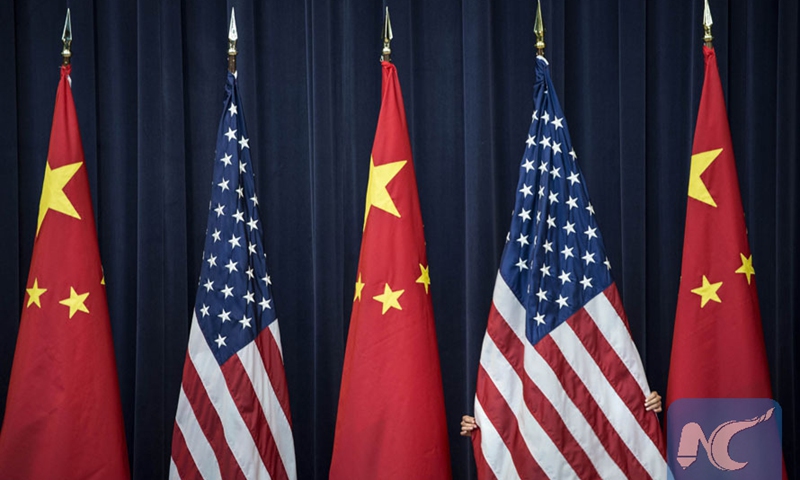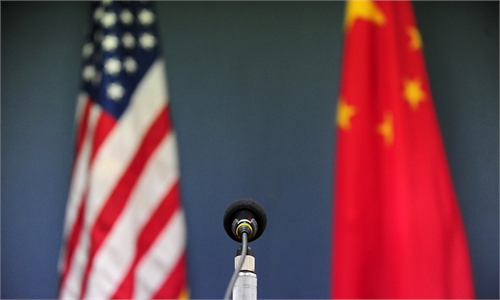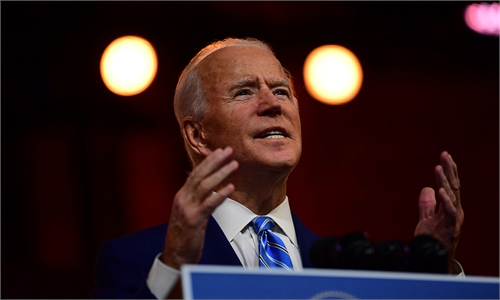China-US trade talks to remain in focus as Biden picks trade rep
Naming Chinese-American lawyer trade rep won't change tough stance: analysts

China US Photo: Xinhua
Following weeks of speculation over US president-elect Joe Biden's stance toward China-US trade ties, with a lingering bruising trade war hanging overhead, a still-elusive but emerging image of the new US administration's approach is slowly taking shape, as Biden continues to form his trade team that will primarily handle China-related issues, with the latest move being naming a Chinese-American trade lawyer as his top trade envoy.
Biden's reported plan to pick Katherine Tai, a long-time trade lawyer who has litigated against China at the WTO, suggests both "offensive and defensive" approaches toward China. Her choice as US Trade Representative (USTR) further confirms the new administration's "tough" stance toward China, while also seeking to unite allies and bolster competitiveness at home, Chinese trade analysts noted on Thursday. They noted that difficulties to resolve trade disputes will likely remain.
Several US media outlets reported on Thursday that Biden is planning to nominate Tai as the USTR. Tai is currently the chief trade counsel for Democratic lawmakers at the US House of Representatives' Ways and Means Committee,. Once confirmed by the US Senate, Tai would face a flurry of pending trade issues, including tariff wars with not just China but also US allies.
However, among the top priorities for Tai, who is said to have extensive experience in China-related issues, having taught English in southern China and speaking Putonghua (standard Chinese), would be addressing lingering intricate issues with China, including implementation of a phase one trade agreement and US punitive tariffs on hundreds of billions of dollars in Chinese products - the legacy of the Trump administration.
Tai, who was also a lawyer at the USTR's office on China-related trade issues between 2007 and 2014, has spoken critically of the Trump administration's trade approach toward China, suggesting that Trump's aggressive measures to confront China were "mostly defensive" and lacked an offensive approach.
"A good and progressive trade policy has to have offensive and defensive elements… The offense has got to be about what we are going to do to make ourselves, our workers, industries and allies faster, nimbler, be able to jump higher, be able to compete stronger," Tai said at an online panel on US trade policy on August 5.
"I think her role in China-US trade talks remains to be seen, because Biden will be the one setting the tone toward China just as Trump did," He Weiwen, a former senior trade official and a senior fellow at the Chongyang Institute for Financial Studies of the Renmin University of China, told the Global Times on Thursday, adding that Biden will likely continue to be tough on China with the help of US allies, while also pursuing dialogue.
In a recent interview, Biden made clear that he would not make an "immediate" move on remaining tariffs, but will consult US allies first. Biden did not indicate whether he would launch trade negotiations with China after he takes office in January.
While Tai's background on China-related trade policies and knowledge of China could be helpful in the talks, "the most essential part of negotiations is the content and demands," Huo Jianguo, vice chairman of the China Society for World Trade Organization Studies, told the Global Times on Thursday. "To avoid appearing soft, Chinese-American politicians could be even tougher sometimes."
At the panel in August, Tai said that the US has to keep in mind while it's facing "very stiff competition" from China, "China is not going away." However, she also indicated that the US approach should not just be about economics but also to "defend this open democratic way of life that we have."
Such suggestions could dim the prospects for a potential breakthrough in the trade talks, as bringing political and ideological factors could further complicate the already delicate trade talks, Chinese trade experts noted.
However, cooperation in certain areas of mutual benefits could be possible, as Trump's multi-year trade war with China has seriously hurt thousands of US businesses, forcing US state and city-level officials to take matters into their own hands in pursuing ties with Chinese local governments, and Biden will likely allow such pragmatic cooperation as opposed to Trump's generally toxic and disruptive approach, analysts noted.
During a recent online discussion on China-US sub-national cooperation, several former US governors called for more cooperation between Chinese and US local governments.
"Sub-national is really where the action will be going forward. This is where we can be most productive," said Jon Huntsman, former governor of Utah and former US ambassador to China, according to a report on escn.cn.
He Weiwen said that sub-national cooperation took off when former US president Barack Obama was still in office and Biden was vice president. "I've always stressed that China-US cooperation should also focus on local governments and businesses rather than just on the national level," he said.



